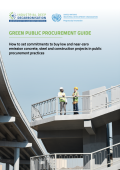
Guidance to help governments use public procurement to drive demand for low-carbon steel, cement, and concrete in construction projects.
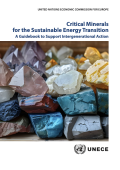
This guidebook examines intergenerational equity in mining, from environmental impacts to economic and cultural effects, especially on Indigenous lands.
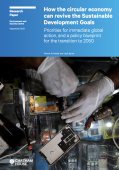
This report demonstrates how circular principles can transform food, transport energy and housing systems to cut resource use and pollution.
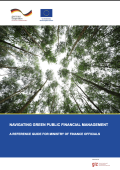
From cutting fossil fuel subsidies to strengthening disaster risk management, this guide covers a wide range of sustainability issues across diverse country contexts.
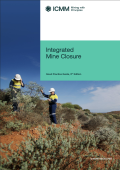
This guide helps mining companies plan for sustainable closure from day one, supporting better outcomes for people, nature and the economy.
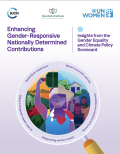
This scorecard helps countries build stronger, fairer climate policies by tracking gender equality in national climate plans.

This guidance document supports the objectives of the global monitoring plan for persistent organic pollutants by providing a standardized framework for collection, analysis, statistical evaluation and reporting of POPs data.
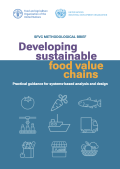
This brief outlines a rigorous framework for analyzing and improving value chains, ensuring they are economically, socially and environmentally sustainable.

This document provide guidance to Parties of the Stockholm Convention to minimise their releases of persistent organic pollutants from unintentional production for the main identified processes and technologies.
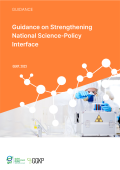
This guidance explores how to strengthen the science-policy interface for the Basel, Rotterdam, and Stockholm Conventions, detailing a roadmap to translate scientific knowledge into effective policies for managing hazardous chemicals and waste.
